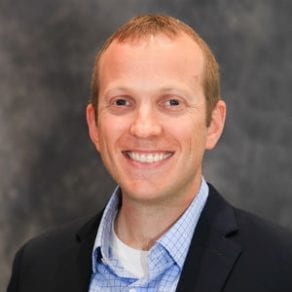A great confrontation between the Biblical brothers provides both the outline for future anti Semitism as well as the true final solution for the Jewish problem.
This week marks the 75th anniversary of the Night of Broken Glass. Kristallnacht was the beginning of the end for European Jewry and the start of the Holocaust. On November 9th and 10th, 1938, massive riots broke out in Nazi Germany and thousands of synagogues, Jewish homes and businesses were ransacked and destroyed. Many European saw Kristallnacht as a wake up call and escaped from Europe, but unfortunately, the vast majority did not. In the ensuing years of World War Two, more than one third of all Jews in Europe were killed, six million in total. The lesson of Kristallnacht, however, goes back much further than seventy five years to the confrontation between Jacob and Esau in this week’s Torah portion. Jewish tradition teaches that this story contains not only the outline for future conflicts between the descendants of Jacob and the descendants of Esau, but also the solution for the age old problem of anti-Semitism.
Twenty years had gone by since Jacob fled for his life from his twin brother Esau who had threatened to kill Jacob for stealing the blessing from their father Isaac. The passage of time has been good to Jacob. His family had grown, he already had eleven sons and amassed a great fortune. Jacob is finally ready to return to Israel and resume his place as the spiritual heir to Abraham and Isaac in accordance with God’s promise, “Your offspring shall be as the dust of the earth, and you shall spread out powerfully westward, eastward, northward and southward, and all the families of the earth shall bless themselves by you and by your offspring. Behold, I am with you, I will guard you wherever you go and I will return you to this land” (Genesis 28:14-15).
There is no evidence of any contact between Jacob and Esau, yet Genesis 32 reports that Jacob is terrified about their approaching encounter:
“Jacob became very frightened, and it distressed him. So he divided the people with him, and the flocks, cattle, and camels into two camps. For he said, “If Esau comes to the one camp and strikes it down, then the remaining camp shall survive (PLEYTA).”
While Jacob’s strategy seems nothing more than a clever plan to protect his family, a careful exploration of the Biblical Hebrew used in this passage uncovers a powerful message. The Hebrew word which Jacob uses to mean “survive” or “escape” is “PLEYTA” which appears much later in the Torah as well.
The Book of Kings records Jezebel inciting her husband, King Ahab, to persecute and kill the prophets of God. At great personal risk, the head of their royal household, Obadiah, defied his patrons and saved the lives of many prophets by interestingly enough, following the same strategy of Jacob: “And it was when Jezebel had decimated the prophets of God, Obadiah took a hundred prophets and hid them, fifty men to a cave and sustained them with food and water” (I Kings 18:4).
Jewish literature fills in the gaps and provides additional background information on the hero of this story, Obadiah. According to the Talmud, Obadiah was a descendant of Esau, a convert to Judaism. In reward for his courageous acts in saving the lives of one hundred prophets, Obadiah is granted the gift of prophecy himself and becomes God’s messenger to prophesize about the downfall of his own ancestor, Esau.
With this background in mind, we have a more complete and deeper understanding of the words of Obadiah, the shortest book in the Torah, summarized briefly here:
The vision of Obadiah, thus said the Lord, God, concerning Edom… Behold on that day, I will eradicate wise men from Edom and understanding from the Mountain of Esau…For the oppression of your brother Jacob, disgrace will envelop you and you will be cut off forever…For the day of God upon all the nations is close. As you have done so shall be done to you…On Mount Zion there will be refuge (PLEYTA), and it will be holy; and the house of Jacob will inherit those who had dispossessed them. The house of Jacob will be fire, the house of Joseph a flame, and the house of Esau for straw…Saviors will ascend to Mount Zion to judge the Mountain of Esau, and the kingdom will be the Lord’s.
In action and in word, Obadiah is the embodiment of Jacob, as he foretells the end of times rematch with Esau. Obadiah’s selection and elevation was on account of his following in Jacob’s footsteps by dividing the prophets and saving their lives. Linguistically too, Obadiah goes out of his way to use the very same Hebrew word PLEYTA that Jacob originally used to describe his confrontation with Esau. When the same Hebrew word is used to describe unrelated events, clearly the Bible is teaching that there is a deep connection between the two. Obadiah is invoking the great confrontation between Jacob and Esau to describe the final encounter between the two nations and teaching us the ultimate secret to survival for Jacob’s descendants, the Jewish people.
In the years leading up to Kristallnacht and following Hitler’s ascension to power in Germany, the leading rabbi of the generation, Israel Meir Kagan was asked in 1933 about the fate of the Jewish people. The wise and saintly rabbi known as the “Chofetz Chaim,” whose contribution to Judaism is so great that even today his books are studied daily, was asked what would become of the Jewish people. After all, Hitler had already outlined “His Struggle” in Mein Kampf and made clear his final solution to annihilate the Jewish people. As recorded in his Torah commentary, Rabbi Kagan answered, “Hitler shall fail! No one has ever succeeded in destroying our nation in the lands of our dispersion. The verse says so explicitly, “If Esau comes to one camp and smites it, then the remaining camp shall escape (PLEYTA).”
His students pushed further. “But if Hitler does succeed in destroying one of the camps, a portion of the Jewish people, who will be the remaining camp that will escape?”
The prophetic words of Rabbi Kagan sent chills down the spines of his students: “This too is stated explicitly in Scripture, “On Mount Zion there will be refuge (PLEYTA), and it will be holy.” Rabbi Kagan connected the words of Obadiah to the words of Jacob and in 1933 promised that the survival of the Jewish people would be through the Land of Israel. Kristallnacht in 1938 proved how prophetic his words actually were and many Jews desperately tried to escape Europe to find refuge in Israel. A student of the Chofetz Chaim, Rabbi Shlomo Kahanaman took his teacher’s words to heart and moved to Palestine in 1940 to be the “remaining camp” that would escape the enemy. Rabbi Kahanaman started the Ponevetch Yeshiva in the town of Bnei Brak which today has over one thousand students and is one of the largest Torah academies in the world. In his new building in the Promised Land he etched the Biblical words and the promise of his master on the front wall: “On Mount Zion there will be a refuge, and it will be holy.”
Long ago, Jacob taught the true final solution for the Jewish problem. In his great confrontation with Esau, Jacob established for the Jewish people that we must never forget that Zion is our only refuge from persecution and anti-Semitism. The painful lesson of Kristallnacht and the loss of one third of the Jewish people in the Holocaust proved that so long as there are Jews in the Land of Israel, our future is secure.




